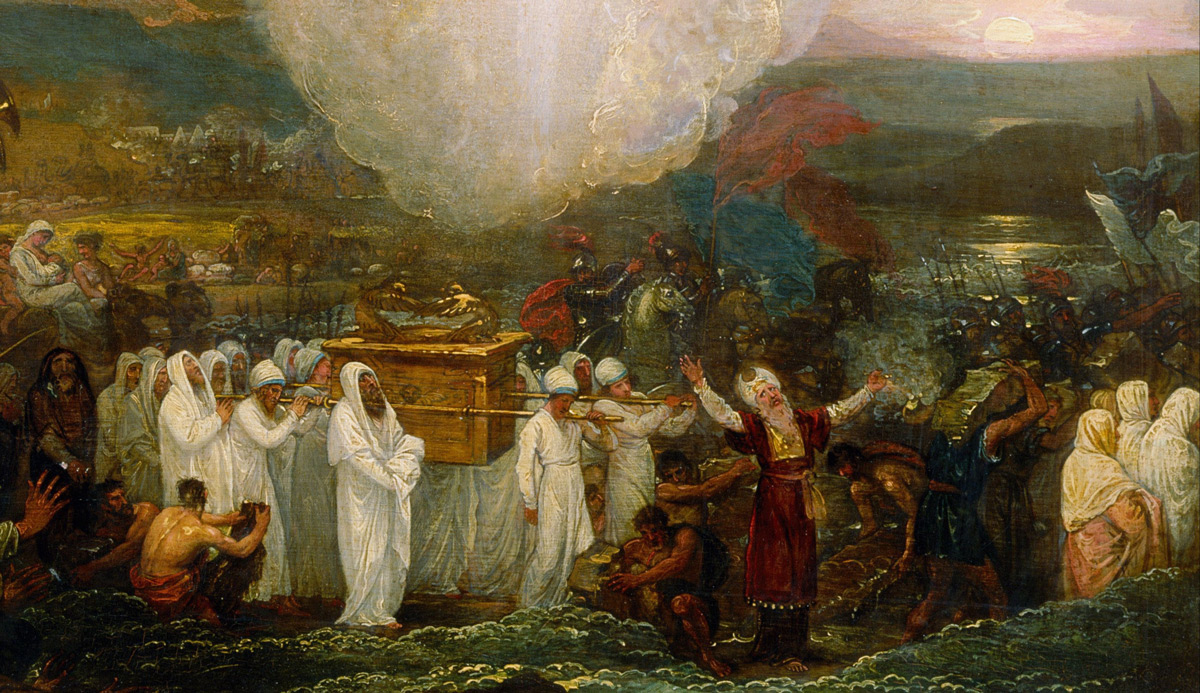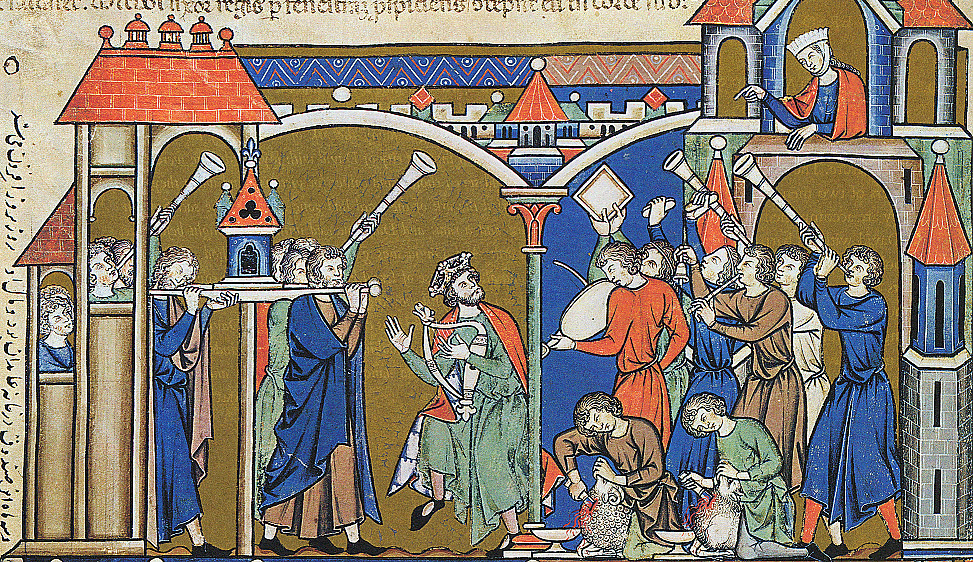Editors’ Note: Our April essay, “The Spirit of Jewish Conservatism,” by Eric Cohen, elicited such strong reactions, both in our pages and elsewhere, that we decided to continue the debate in the form of a symposium. Over the course of this week, we’re presenting brief reflections on Cohen’s thesis by 37 leading Jewish and non-Jewish thinkers. In today’s group are Ruth Gavison, Wilfred McClay, Yoav Sorek, Ira Stoll, George Weigel, Micah Goodman, and David Ellenson.
———
Ruth Gavison: Neither Exclusively Conservative nor Exclusively Liberal
Against the background of demands that American Jews must choose between their liberalism and their Zionism, or that Israel must choose between its commitment to liberal democracy and its commitment to Jewish self-determination; and against the acute dilemma of American Jews torn between their support for President Obama’s Iran policy in the name of liberalism or loyalty to the Democratic party and their sense that the Iran deal is dangerous for both Israel and America—against all this, Eric Cohen’s call for a conservative Jewish vision and his claim that conservatism is true to the Jewish tradition come across as refreshing, important, and timely.
For Cohen, Judaism—whether or not a committed Jew believes in God—is largely compatible with the conservative worldview. He therefore proposes his model of Jewish conservatism as an adequate response to the challenges facing Jews and the Jewish people today—those challenges being, in his words, “the threat of Jewish liberalism from within, and the [twin] threats of militant secularism and militant Islam from without.”
Is not Cohen, then, advancing yet another binary demand—in this case, that Jews must choose between Judaism and liberalism? I disagree with both his framing of the challenge and his recommendation for action.
I prefer to frame the challenge as that of Jewish continuity. The threats to it are indeed both internal and external, but we need to distinguish between the ideological and the material, and between the essential and the contingent. Militant Islam is clearly external, but it is not a real cultural challenge to Judaism. Liberalism and secularism (possibly related?) pose serious issues, but the Jewish tent can accommodate not just conservative commitments to Judaism, whether religious or non-religious, but liberal and secularist commitments as well. To meet the challenge of Jewish continuity, all possible avenues must be explored to heighten Jews’ appreciation of the Jewish component of their identity and their wish to transmit it to future generations.
Cohen is therefore just as wrong as those who argue that a liberal reading is the best or exclusive interpretation of Judaism. True, a thin, cosmopolitan version of liberalism deprives Judaism of its necessary distinctiveness and particularism, ingredients that inspire and sustain a nation and a culture. But not all Jewish liberals profess that version, while, on the other side, some conservatives who happen to be Jewish have no interest in Jewish continuity at all.
Judaism honors both the freedom of individuals and the importance of families, communities, and society. Like every great heritage, culture, or civilization, it strives to balance the value of distinctiveness against the value of universal responsibility and the prudential need to get along with other groups and peoples; to celebrate authority and tradition and the drive to make the world a better place. Judaism is therefore neither exclusively conservative nor exclusively liberal.
Indeed, if we want democracies, including the Jewish and democratic state of Israel, to flourish and exhibit the reasoned ability to change, adapt, and progress, liberals and conservatives alike are required to put forth their alternative political visions, just as liberal and conservative politicians, as well as the leaders of religious and other groups within society, are required to cooperate in the advancement of democratic governance and the protection of human and minority rights. No major societal progress can be achieved or endure if it is presented as the victory, once and for all, of a single political, religious, cultural, or social worldview against another.
Ruth Gavison is the Haim H. Cohn Professor Emerita of human rights at the Hebrew University of Jerusalem and the founding president of the Metzilah Center.
———
Wilfred M. McClay: Liberalism Betrays the Possibility of Jewish Identity
Eric Cohen has written a magnificent essay, eloquent, panoramic, visionary, trenchant, and to my mind entirely persuasive. It should be read by all men and women of good will, and not merely by Jews or conservatives, because it suggests why the flourishing of Jewish identity, belief, and practice in the world is such a sine qua non, and at the same time a litmus test by which to monitor the moral flourishing of America and the West. Yet, as Cohen argues, Judaism and Jewish identity cannot survive without separating themselves from the liberalism to which they have become so thoroughly overcommitted, especially in the American setting, and without rediscovering and embracing anew the radical and inescapable particularity of the Jewish people, their destiny grounded, somehow, in ancient responsibilities of divine commission and command.
Liberalism has not always been an enemy of the Jews; far from it. There are powerful historical reasons why they have been so loyal to it. But its relentless universalism and its penetration of all spheres of life have made it an enemy today, a betrayer of the very possibility of Jewish identity. Even so, one sees little general willingness, as yet, to reconsider the relationship. Certainly no such willingness is evident in the characteristic American Jewish patterns of voting behavior and other political activity, not to mention such vital considerations as intermarriage. Jewish identity has become tied to a great many things that may not, in the end, be very Jewish at all; and it may have neglected things that are all too essential.
But this could change; indeed, it will have to change, and it is important to begin to lay down a robust structure of ideas to be in place when the change comes. To speak of “Jewish conservatism” may seem incongruous, but it isn’t: the durability of Jewish beliefs and practices under the most difficult conditions imaginable is, quite simply, the world’s most impressive testimony to the power of self-conscious and intentional cultural continuity. What is most intriguing in Cohen’s analysis is the way he places the conservative renewal of Jewish life in a larger context: the clear failure of universalistic enterprises, such as the United Nations and the European Union, which have purported to replace the particularity of the “outmoded” nation-state with more and more comprehensive schemes of political union, all in the name of the cosmopolitan ideal itself.
In an increasingly post-universalistic world, the “scandal” of Jewish particularity should no longer register as either scandalous or backward-looking. Instead, it gives crucial support to the conviction that the Jews have a unique role to play in the life of the world.
Wilfred M. McClay is the G.T. and Libby Blankenship chair in the history of liberty at the University of Oklahoma.
———
Yoav Sorek: For Jewish Conservatism, but Also for Jewish Messianism
Eric Cohen’s essay points to a real and deep need of the current Jewish generation. I would like to join the conversation by highlighting one point that I think is especially significant.
It’s not by accident that many of the leading figures of contemporary liberal thought—a body of thought that undermines the moral foundations of family, nationalism, and faith—are Jews. The expectation that Jews can find peace of mind in conservative ideas ignores, I’m afraid, the Jewish soul itself. As Jews, our history is notable for the absence of a propertied class of many generations’ duration, or an aristocracy based on traditional values. We are a dynamic people, living a messianic vision: a people built not upon the natural desire for a good life, a desire that sanctifies the actual, but rather upon an unending drive for redemption and utopia.
Seen in this context, however, Jewish tradition offers an outstanding balancing system, one that has managed to channel a burning radical impulse through conservative arrangements that put a premium on sobriety and the keen awareness of the possible. To renounce this balanced system and attempt to replace it with the type of “normal” existence that is natural to non-messianic people simply cannot and will not work for more than a generation. The mere existence of a Jewish state doesn’t satisfy the Jew; nor does victory over that state’s enemies. The Jew expects Israel not just to preserve itself but to serve higher ends. If it fails to do that, it is hard for Jewish patriots to remain patriots.
We desperately need Jewish conservatism. I’m in. But it will succeed only if it learns to incorporate the truth that is hidden in the liberal “Jewish” critique. There is only one model of Jewish conservatism that displays this virtue: it is the model of traditional, Torah-oriented Judaism. I agree with Yoram Hazony and Meir Soloveichik in their responses to Cohen: the new Jewish conservatism must be based on our good old-fashioned and yet extremely complicated Torah heritage.
This Torah, some say, suffers from anachronism and stagnation. If so, we will never be able to establish a deep and successful Jewish conservatism until we learn how to reclaim it, and widen its tent. Then, using its tools and its teachings, we can generate the spiritual and normative systems that we so sorely need. Creating this Jewish conservatism from within the Torah is the sacred mission of our generation—as well of those who will come after us.
Yoav Sorek, an Israeli editor and journalist who writes mainly in the fields of thought and religion, is the author of a new book, The Israeli Covenant (Hebrew), on the challenge of Jewish renewal in Israel.
———
Ira Stoll: The Spirit of Big-Tent Jewish Conservatism
Eric Cohen’s “The Spirit of Jewish Conservatism” usefully draws on what Yuval Levin describes as Ronald Reagan’s concept of a “three-legged stool”: social conservatism, national-security conservatism, and free-market economics. I think that discussion of his essay will be even more productive if it is informed by another Reagan concept: the big tent. As Reagan put it in 1967, speaking about the Republican party: “There is room in our tent for many views; indeed, the divergence of views is one of our strengths.” This is not only a Reaganite approach but a Jewish one: think of the tradition that Abraham’s tent was open on all four sides. Jewish tradition has been big enough for Hillel and Shammai, for the Ḥasidim and the Mitnagdim, for Sephardim and Ashkenazim.
In that spirit, I would respectfully question Cohen’s description of “zealous libertarians like Ayn Rand” as “radically anti-Jewish.” It’s true that Rand didn’t like any religions. A big-tent Jewish conservatism, though, rather than kicking Rand and admirers of her work out of the tent, might appreciate her contribution to illustrating the excesses of the state and the oppression of individual genius in the context of 20th-century fascism and Communism—both genuinely anti-Jewish. Similarly, I’d differ with Meir Soloveichik’s contention that David Ben-Gurion “cannot be regarded as a hero of Jewish conservatism.” Big-tent Jewish conservatism, rather than dwelling on Ben-Gurion’s shortcomings, might admire his contributions to Jewish security and his love of the Bible.
The spirit of big-tent Jewish conservatism, a term Cohen actually invokes in his essay, is more fully on display in his reply to his respondents in which he writes, “it is not necessary to be an observant Jew to be a Jewish conservative,” and also suggests that Jewish conservatism should be open to those who seek God “but do not find Him.” As this discussion proceeds, it will be strengthened if it can find the confidence to leave room for a similar big-tent approach on families, and, within broad boundaries, even on national security and the economy.
There is, to be sure, a continuum, ranging from the heroic, the normative, and the unconventional but still within the tent to, finally, outside the tent. Even a big-tent advocate like me would concede that some things are outside—Christianity, for example. But the more Jewish conservatism is developed from a position of confident openness rather than narrow dogmatism or insecure doctrinalism, the more it is likely to be attractive, durable, popular, valuable, and authentically both Jewish and conservative.
Ira Stoll is the author of Samuel Adams: A Life, and JFK, Conservative. He edits FutureOfCapitalism.com and tweets @IraStoll.
———
George Weigel: Two Critical Nutrients of Conservative Jewish Soil
“Jewish conservatism is meant to create a big-tent community of values and ideas”: it’s a nice image that Eric Cohen uses, but as a people forged amid desert wanderings should know, the soil in which you try to plant the tent poles makes a lot of difference. Here are two nutrients of the soil in which a “big-tent” Jewish conservatism capable of addressing the crisis of the West and the threats to the state of Israel can be planted; happily, both nutrients are quite kosher.
The first nutrient is to remember that the foundational metaphor of freedom in the civilization of the West is not the storming of the Bastille but the exodus from Egypt. That is, our most profound understanding of freedom does not come from either the continental Enlightenment or the French Revolution—and certainly not from the “liberation” movements of the late-20th and early-21st centuries—but from the Bible. Which is in turn to say that freedom in a truly liberating sense of the word always involves God and man, not just humanity alone. Indeed, it involves humanity learning what the people of Israel learned, often the hard way: that the most humane path through history is the path God is taking, and that genuine human liberation means identifying that path and following it.
The second nutrient is the recognition that the moral code given to the people of Israel at Sinai is itself liberating, for it’s a moral code intended to prevent Israel from falling back into the habits of slaves: from getting shackled in self-constructed Egypts.
And that means, among many other things, that a Jewish conservatism that best serves the Jewish people and the civilization of the West is a conservatism that rejects the claims of atheistic humanism and the project of the autonomous, self-constructing self—which are destroying the West from within—and that embraces the God of Abraham, Isaac, and Jacob as the true liberator.
George Weigel is distinguished senior fellow of the Ethics and Public Policy Center in Washington, D.C., where he holds the William E. Simon chair in Catholic studies.
———
Micah Goodman: On the Free Market, the Bible Draws a Balance
Something is missing from the description in Deuteronomy of a truly biblical political system. The passage in question (17:14-20), which concerns the appointment of a king, details the various things he is forbidden to do. It also requires him to write a Torah scroll, to study it throughout his life, and to obey its commands. Nowhere, however, are the kings’ subjects commanded to obey him.
As in ancient times, so too in the Middle Ages the accepted belief was that kings ruled by divine right. In other words, God had granted them the authority to rule over their subjects. In obeying its king, a nation was obeying God. This is one of the oldest maneuvers in history—and one of the most effective. The Torah, however, has no use for it. Rather than commanding men to obey their king, it commands the king to obey God. And this is but one example of a broader scriptural approach: in the view of the Hebrew Bible, political power should always be limited and circumscribed.
The economic philosopher Friedrich Hayek famously argued that the free market constitutes the most effective safeguard against the concentration of excessive power in the hands of government. If Hayek is correct, the free market has well fulfilled the biblical mandate to limit the reach of government.
The problem is that additional voices can be found in Scripture. Jeremiah attacks the people for holding Temple rituals more important than a social conscience; Isaiah castigates king and courtiers, blinded by power to the desperate condition of the poor; Amos condemns the hedonism of the rich, indifferent to the afflictions of the masses.
Where does this leave us? Setting the need for limited government against the need for a powerful sense of social responsibility, the Bible draws a balance. The ideal commonwealth would thus combine the virtues of a welfare state embodying Scripture’s concern for the poor and a capitalist state in which the free market limits the power of government. Whereas the Labor-Zionist theorist Berl Katznelson (1887-1944) strove to articulate a socialist vision for the Jewish state on the basis of the Bible, Eric Cohen tries to bring forth a capitalist teaching from the same source. Each fails to the degree that the other is correct. No single economic doctrine can claim a scriptural monopoly.
Cohen is especially compelling in his argument that, for the state of Israel to be secure, it must have a strong and advanced military; that this cannot be achieved without a strong economy; and that capitalism offers the most effective path to economic strength. Therefore, as far as Israel is concerned, the issue can be settled thus: capitalism may not fully represent Judaism, but it undoubtedly protects the Jews.
Micah Goodman, director of the Ein Prat Academy for Leadership in Israel, is the author most recently of Maimonides and the Book That Changed Judaism.
———
David Ellenson: Against “Adjectival Judaism”
I have great admiration for Eric Cohen, and there is much in “The Spirit of Jewish Conservatism” with which I agree. I share his concern for Jewish particularity and his devotion to the state of Israel and its defense. I also believe passionately, as does he, in the role that Judaism and the Jewish people are called upon to play in the unfolding story of human meaning and virtue.
But I must confess to a sense of a discomfort as I read his words. The late Rabbi Leo Baeck once remarked that he was opposed to an “adjectival Judaism” in which the modifier Reform, Orthodox, or Conservative was more important than the noun Judaism. I fear that Cohen’s devotion to conservatism and opposition to liberalism are so complete as to lead him into caricaturing the positions and motivations of those he perceives as his ideological adversaries among the Jewish people.
For example: it is simply not true that Israeli and Diaspora Jews who are critical of the monopoly held by Israel’s chief rabbinate in matters of personal status put forth their critiques out of a desire “to live the ‘normal’ life characteristic of other advanced democracies.” Rather, most believe that the positions adopted by the chief rabbinate on issues of conversion to Judaism and Jewish status are consistently and needlessly cruel and exclusionary—and that they ignore large numbers of Jewish legal precedents that would more optimally serve the contemporary needs of a diverse Jewish people either in Israel or the Diaspora.
Similarly, the notion of the Jewish family and the foundational role it plays in assuring Jewish continuity can surely be expanded beyond the confines of a hetero-normative model—and I say this as a heterosexual father of five. Finally, the long-term security interests of the Jewish state certainly require constant vigilance against Iran and Hamas. But attention must also be paid to the demographic explosion of the Palestinian population on the West Bank and what Israeli control over that territory and its population will mean for Israel’s future security.
The sources of Jewish strength and the spirit of our tradition do not emerge from an over-embrace of one philosophical posture to the exclusion of another. Rather, the vitality of Judaism and its values emerge when Judaism allows full expression to its liberal as well as its conservative elements.
David Ellenson, chancellor emeritus of Hebrew Union College-Jewish Institute of Religion, is visiting professor and acting director of the Schusterman Center for Israel Studies at Brandeis.
———
Coming tomorrow: Daniel Gordis, Michel Gurfinkiel, Dan Polisar, Shlomo Riskin, Amos Yadlin, Harvey Mansfield, Asher Lopatin, and Dov Wagner.
More about: Jewish conservatism







